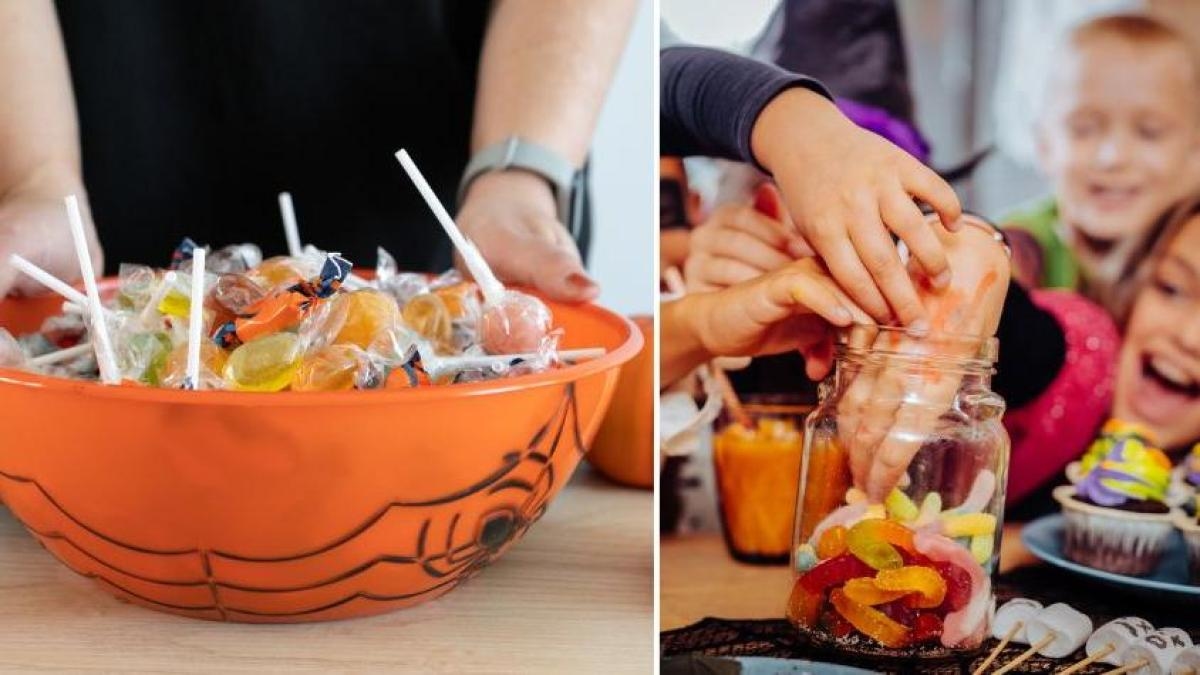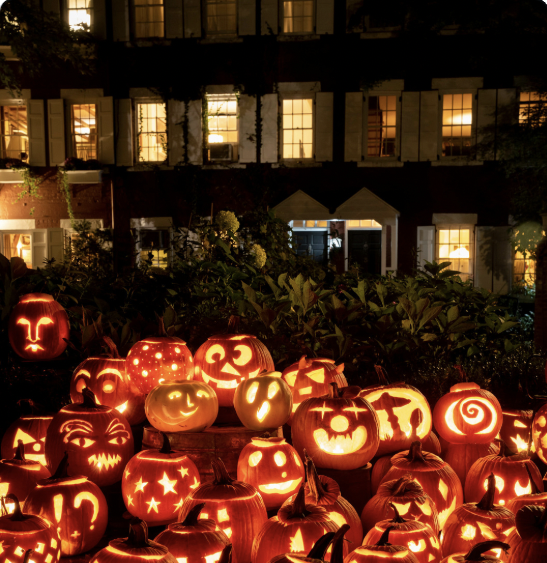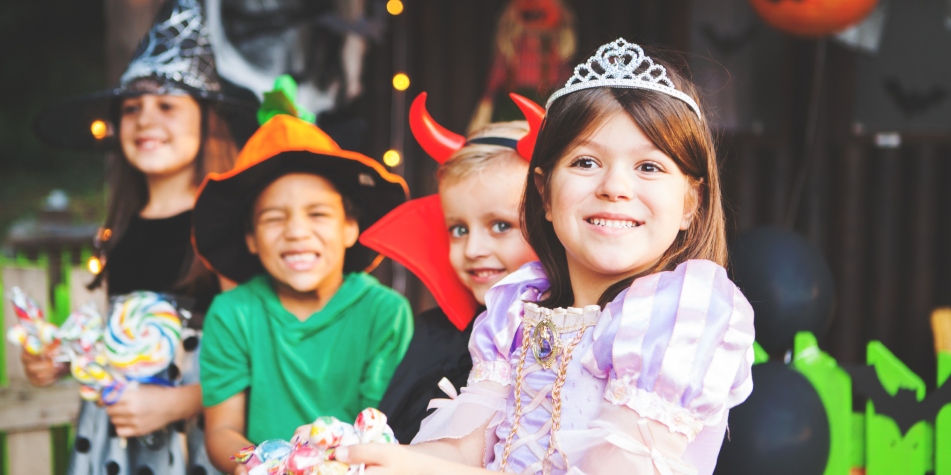Hyperactivity, insomnia, and risk of poisoning: the effects of excessive candy consumption on children during Halloween and how to prevent it.

Halloween is one of the most anticipated holidays for children, but also one that raises the most concerns among child health specialists. Behind the costumes, pumpkins, and bags full of candy lies a silent risk: excessive or adulterated candy consumption. According to the National Institute of Health (NIH), during Halloween week, pediatric visits for poisoning in children increase by nearly 30%.

Lack of supervision and excessive consumption of sweets can lead to food poisoning. Photo: iStock
Dr. Olga Melo, a clinical toxicology specialist at San José University Children's Hospital, explains that children's bodies are especially sensitive to sudden glucose fluctuations. "When children ingest large amounts of sugar in a short period of time, the body experiences a sudden increase in glucose levels that triggers a massive release of insulin. This can initially generate euphoria and energy, but then irritability, fatigue, and, in some cases, loss of consciousness occur," the doctor noted.
Added to these effects are digestive discomfort such as nausea, vomiting, and abdominal pain. “Excessive sweets stimulate the nervous system, making children more active, restless, and having difficulty sleeping. Some products, such as those containing dark chocolate, may contain caffeine, which also interferes with sleep,” the specialist added.

Doctors warn about the effects of sugar, caffeine, and possible candy adulteration. Photo: iStock
However, the problem isn't limited to excess sugar. In recent years, health authorities have detected cases of candy adulterated with substances such as THC (tetrahydrocannabinol), excessive caffeine, alcohol, or heavy metals like lead, as well as unapproved colorings. These elements, in minimal quantities, can have severe effects on children's nervous systems.
"In cases of adulteration, symptoms can be more severe: persistent vomiting, diarrhea, seizures, behavioral changes, or extreme drowsiness. That's why it's essential to check packaging and labels and avoid products of unknown origin," Melo warned.
Warning signs to watch out for Warning signs parents should be aware of include recurrent nausea, difficulty breathing, seizures, extreme drowsiness or unusual agitation, as well as dilated or constricted pupils and loss of coordination or muscle strength. If any of these symptoms occur, doctors recommend immediate medical attention or contacting a pediatrician.
Beyond the Halloween context, experts insist that frequent and uncontrolled candy consumption has serious long-term consequences: increased childhood obesity, early onset of insulin resistance, and a higher risk of type 2 diabetes. It can also foster unhealthy eating habits and an inappropriate relationship with food from an early age.

Hyperactivity, insomnia, vomiting, and seizures are some of the most commonly reported symptoms. Photo: iStock
The San José Children's University Hospital emphasized that prevention is the best way to avoid emergencies. Its recommendations include always accompanying children during candy collection, carefully inspecting products before eating them, and setting reasonable intake limits.
Likewise, it is recommended to offer nutritious foods before trick-or-treating to prevent children from overeating; encourage them to share the candy instead of consuming it all; and prioritize fun, dressing up, and playing over sugar. The institution also insists on avoiding products without labels or original packaging, and immediately consulting a doctor if any suspicious symptoms occur.
"Without adequate adult supervision, Halloween can become a hotbed of pediatric emergencies," the Hospital warned. The immediate impact of excess sugar on behavior and sleep, coupled with metabolic and neurological risks, turns this holiday into a public health issue.
Environment and Health Journalist
eltiempo

%3Aformat(jpg)%3Aquality(99)%3Awatermark(f.elconfidencial.com%2Ffile%2Fbae%2Feea%2Ffde%2Fbaeeeafde1b3229287b0c008f7602058.png%2C0%2C275%2C1)%2Ff.elconfidencial.com%2Foriginal%2F53b%2F93a%2Fc9f%2F53b93ac9f070e87dcca0ece8b00d2161.jpg&w=1280&q=100)
%3Aformat(jpg)%3Aquality(99)%3Awatermark(f.elconfidencial.com%2Ffile%2Fa73%2Ff85%2Fd17%2Fa73f85d17f0b2300eddff0d114d4ab10.png%2C0%2C275%2C1)%2Ff.elconfidencial.com%2Foriginal%2Fa58%2F00b%2F79d%2Fa5800b79d7f358d8473d95372cf7e45c.jpg&w=1280&q=100)
%3Aformat(png)%3Aquality(99)%3Awatermark(f.elconfidencial.com%2Ffile%2Fa73%2Ff85%2Fd17%2Fa73f85d17f0b2300eddff0d114d4ab10.png%2C0%2C275%2C1)%2Ff.elconfidencial.com%2Foriginal%2F513%2F4c7%2F49b%2F5134c749b79b9fa93a00a1c5e333053b.png&w=1280&q=100)
%3Aformat(jpg)%3Aquality(99)%3Awatermark(f.elconfidencial.com%2Ffile%2Fa73%2Ff85%2Fd17%2Fa73f85d17f0b2300eddff0d114d4ab10.png%2C0%2C275%2C1)%2Ff.elconfidencial.com%2Foriginal%2Fd56%2F668%2F8a8%2Fd566688a85aa51cbc3dcd67dd9b8ee40.jpg&w=1280&q=100)
%3Aformat(jpg)%3Aquality(99)%3Awatermark(f.elconfidencial.com%2Ffile%2Fbae%2Feea%2Ffde%2Fbaeeeafde1b3229287b0c008f7602058.png%2C0%2C275%2C1)%2Ff.elconfidencial.com%2Foriginal%2F968%2F1f7%2F0ff%2F9681f70ff1ec9d4acdaf58ae5d7c7092.jpg&w=1280&q=100)